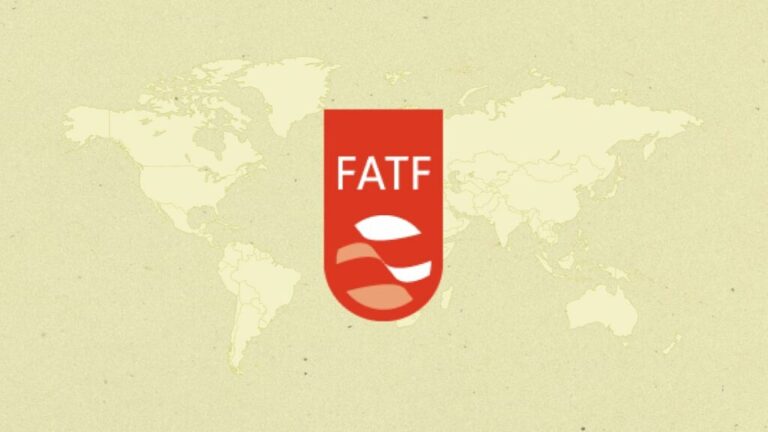In a major step toward global financial reintegration, Nigeria has officially been removed from the Financial Action Task Force (FATF) grey list, marking a historic victory for Africa’s largest economy and a strong endorsement of the government’s ongoing economic reforms.
The announcement was made in Paris by Mr. Wale Edun, the Minister of Finance and Coordinating Minister of the Economy, during the 2025 FATF Plenary. The decision, coming after nearly two years of rigorous reforms, positions Nigeria as a country ready to reassert itself as a credible and compliant player in the international financial system.
“This is not just a technical victory,” Edun declared. “It is a decisive signal to global investors that Nigeria is open, transparent, and committed to the highest standards of financial governance.”
What the FATF Grey List Means — and Why Nigeria’s Exit Matters
The Financial Action Task Force (FATF), headquartered in Paris, is the global watchdog for money laundering, terrorist financing, and threats to the integrity of the international financial system. When a country is placed on the FATF grey list, it faces increased scrutiny and is seen as having strategic deficiencies in its financial regulations.
Being on that list often deters investors, raises transaction costs, and limits access to international banking networks — issues that had weighed heavily on Nigeria’s financial system in recent years.
Now, with its removal, Nigeria joins the ranks of countries recognized for enforcing effective anti-money laundering and counter-terrorism financing (AML/CFT) standards, a move that analysts say could unlock billions in trade, investment, and development finance.
Two Years of Reform and Inter-Agency Collaboration
Nigeria’s journey to delisting began with a comprehensive overhaul of its financial oversight framework. Over the past two years, multiple agencies — including the Central Bank of Nigeria (CBN), the Nigerian Financial Intelligence Unit (NFIU), the Economic and Financial Crimes Commission (EFCC), and the Independent Corrupt Practices Commission (ICPC) — collaborated to close identified gaps and strengthen institutional safeguards.
These reforms introduced stricter compliance standards for financial institutions, digitalized reporting systems, and enhanced inter-agency data sharing to improve detection and deterrence of illicit financial flows.
“The FATF decision is proof that our collective efforts to strengthen transparency and integrity are being recognized globally,” Edun noted. “Nigeria’s removal from the list reflects our determination to build a stable and investor-friendly economy.”
A Boost for Trade, Investment, and International Credibility
Economic experts agree that this development will have far-reaching implications for Nigeria’s financial reputation. Countries listed by FATF often face restrictions that discourage global banks from engaging in transactions with their institutions — a situation that can stifle investment and trade.
With the delisting, Nigeria is expected to enjoy lower transaction risks, improved access to global credit lines, and renewed partnerships with international financial institutions.
“This decision restores confidence among global investors and development partners,” said a senior financial analyst in Lagos. “It shows that Nigeria is serious about aligning its systems with international best practices — something that directly supports its drive for economic diversification.”
A Pillar in the Tinubu Administration’s Economic Agenda
Minister Edun emphasized that Nigeria’s exit from the grey list fits squarely within the Tinubu administration’s broader reform strategy — one aimed at restoring macroeconomic stability, enhancing the ease of doing business, and attracting sustainable foreign investment.
“Our success at FATF reinforces President Bola Ahmed Tinubu’s vision of rebuilding confidence in Nigeria’s economy,” Edun stated. “It lays the foundation for stronger financial integrity, deeper trade integration, and sustained economic growth.”
He added that the government remains committed to continuous improvement, ensuring that compliance structures evolve alongside global financial standards.
A Foundation for a Transparent and Competitive Economy
Nigeria’s delisting does more than remove a label; it symbolizes a restoration of trust. The coordinated actions of the CBN, NFIU, EFCC, and partner institutions have created a framework for consistent oversight, transparency, and accountability.
The Ministry of Finance highlighted that the country’s improved standing would not only attract private investors but also ease access to multilateral development finance, which often depends on compliance with FATF standards.
“This achievement reflects a national consensus — government, regulators, and the financial sector working hand in hand to build a cleaner, more transparent economy,” Edun said.
Beyond Compliance: Building a Future of Confidence
As Nigeria moves forward, experts say the focus should remain on sustaining compliance and institutional integrity. FATF’s decision is a beginning, not an endpoint — an opportunity to deepen reforms and fortify Nigeria’s role as a financial hub in Africa.
For investors, the message is clear: Nigeria is open for business — stronger, more transparent, and more reliable than ever.
With its name cleared and credibility restored, Africa’s most populous nation is poised to transform its financial system into a platform for inclusive growth, innovation, and sustainable prosperity.

